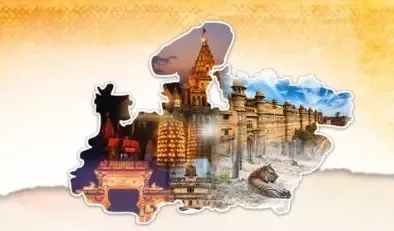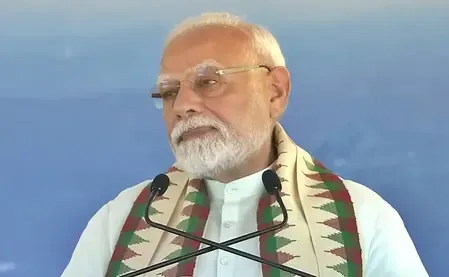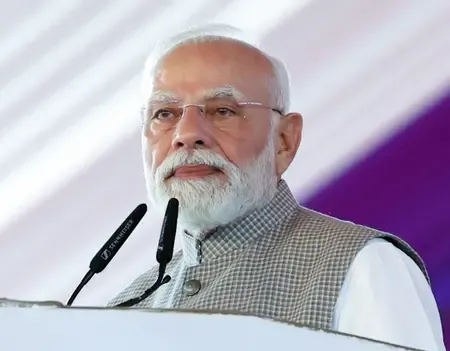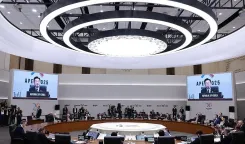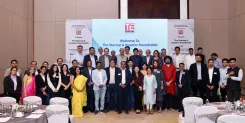Karnataka Government Increases Loan Amounts for Muslims, Union Minister Claims
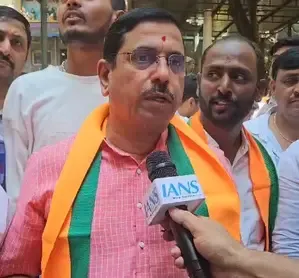
Synopsis
Key Takeaways
- Joshi alleges budget favoritism towards Muslims.
- Concerns raised over economic dependency versus empowerment.
- Calls for skill development in lieu of reservations.
- Critique of resource allocation for minorities.
- Questions about the fairness of contract reservations.
Hubballi, March 8 (NationPress) The Congress administration under Chief Minister Siddaramaiah has reportedly boosted the loan amounts available through the state government specifically for Muslims, as accused by Union Minister for Food, Public Distribution and Consumer Affairs Pralhad Joshi.
During a press briefing in Hubballi on Saturday, he remarked that Karnataka's GDP has surpassed 23 percent, yet every individual in the state now faces a debt burden of Rs 1 lakh.
Joshi criticized the budget for overlooking the Kittur Karnataka and Hyderabad Karnataka (Kalyana Karnataka) regions, deeming it a significant injustice.
He alleged that the state government has fashioned a budget solely aimed at appeasing Muslims and catering to vote bank politics.
While the central government advocates for “Sabka Saath, Sabka Vikas”, the Karnataka Congress government, according to Joshi, is concentrating exclusively on “Muslim Vikas”.
Invoking the principles of Buddha, Basavanna, Ambedkar, and Savitribai Phule, Joshi contended that although the government professes to champion social equality, it is in reality favoring one community. He accused the Congress of employing a “divide and rule” strategy.
Joshi questioned the rationale behind the government's decision to reserve contracts valued up to Rs 2 crore exclusively for Muslims, asking why contractors from other communities are being sidelined.
He condemned the allocation of 20 percent of resources from the Karnataka Industrial Development Board (KIDB) and the Karnataka Industrial Areas Development Board (KIADB) to Muslims, challenging the fairness of such a decision amid land scarcity.
The government has reportedly increased the honorarium for maulvis to Rs 6,000, allegedly funded by temple revenues. Joshi described this as a manifestation of appeasement politics.
The budget also includes a Rs 50,000 financial grant for Muslim weddings. Joshi questioned why similar assistance is not extended to other communities, asking, “Is Karnataka turning into Pakistan?”
While many areas lack cremation grounds for Hindus, the state has earmarked Rs 150 crore for the enhancement of Muslim graveyards, he pointed out.
The state has allocated Rs 50 lakh for cultural initiatives of religious minorities. Joshi inquired about the nature of this culture.
Additionally, the government announced financial support ranging from Rs 30-50 lakh for minority students pursuing education abroad. Joshi criticized this, questioning why students from other communities are excluded.
The budget also allocates Rs 150 crore for minority hostels and additional resources for madrasa development. Joshi expressed concern about whether the government is effectively monitoring activities within madrasas.
While he supports providing education and basic amenities for minorities and underprivileged communities, Joshi argued that offering reservations, contract quotas, and wedding grants perpetuates economic dependence rather than facilitating empowerment. He advocated for skill development and value-based education instead.

